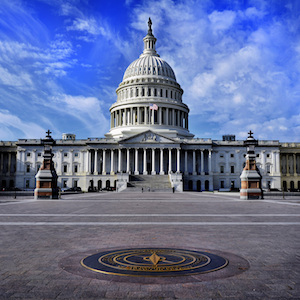
 The American Retirement Association joined over 100 organizations—including major corporations, law firms, and advocacy organizations—in sending a letter June 29 to the House Ways & Means Committee seeking a two-year delay of the Roth catch-up requirement in SECURE 2.0 that requires anyone who earned over $145,000 to make their catch-up contributions on a Roth basis.
The American Retirement Association joined over 100 organizations—including major corporations, law firms, and advocacy organizations—in sending a letter June 29 to the House Ways & Means Committee seeking a two-year delay of the Roth catch-up requirement in SECURE 2.0 that requires anyone who earned over $145,000 to make their catch-up contributions on a Roth basis.
Noting the overwhelming input from the retirement community, the signatories said the task cannot be accomplished in time by the vast number of employer-sponsored plans, forcing them to disallow catch-up contributions altogether.
“For many of these plans, unless this requirement is delayed very quickly (i.e., this summer), their only means of compliance will be to eliminate all catch-up contributions for 2024,” the letter reads. “If a delay is not announced until, for example, the fourth quarter, it will be too late to prevent this adverse result since compliance systems need to be designed well before the effective date.”
Robert Richter, ARA’s Retirement Education Counsel who first identified the Roth catch-up contribution issue, said the drafting error in SECURE 2.0 that was part of the Roth catch-up provision is the primary reason for a congressional letter to the Treasury.
“That $145,000 threshold is based on FICA wages, which means those individuals with no FICA wages (e.g., sole proprietors and partners) would continue to be able to make pre-tax catch-up contributions regardless of their earned income,” Richter explained. “We believe this is an error, and it is not clear if the IRS can find a way to interpret the statute differently without a technical correction.”
The letter signers said that to ensure the issue does not unintentionally result in the elimination of catch-up contributions, they seek a two-year delay of the requirement described in Section 603 of SECURE 2.0. They also want “any time necessary to give state and local governments the opportunity to consider and enact needed legislation and any additional time to avoid requiring changes during the term of a collective bargaining agreement or other applicable binding agreements.”
The letter concludes by noting that “[E]ven if Congress does not act, the U.S. Department of the Treasury and the Internal Revenue Service (IRS) have the authority to unilaterally provide the necessary relief. For example, the issue could be addressed simply by an announcement that the IRS will not seek taxes, interest, penalties, or any other sanctions from any party by reason of noncompliance with the new Roth catch-up contribution rule before January 1, 2026. There are many precedents for such action. A more detailed analysis of this issue will be provided very shortly.”
- Log in to post comments
